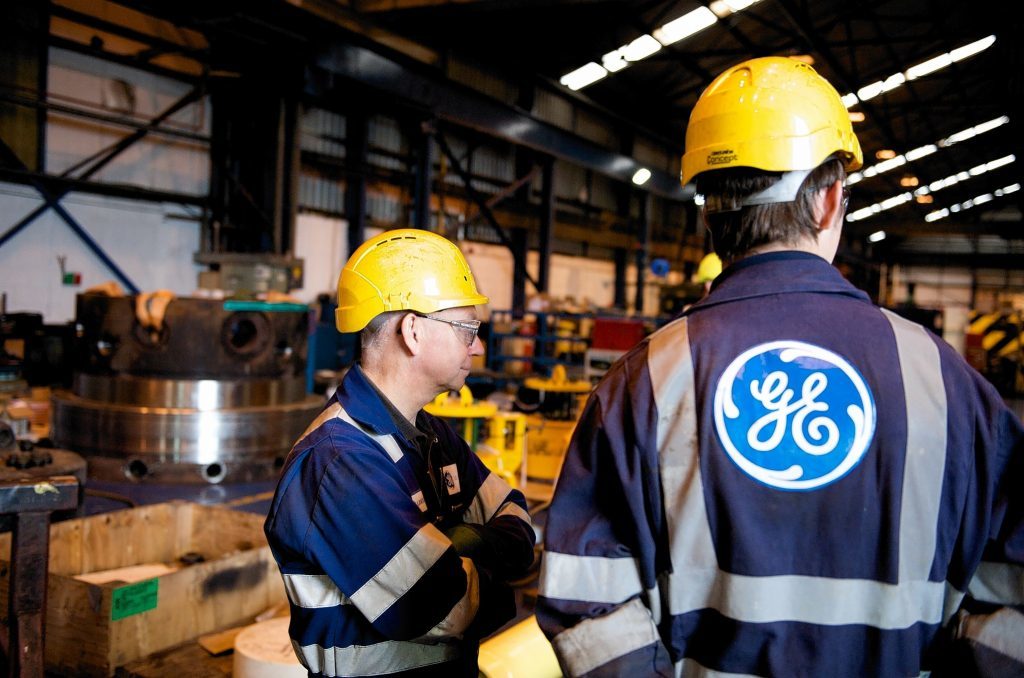
No CEO is showering money on Wall Street like Jeffrey Immelt. And no Wall Street CEO is catching more of it than Jamie Dimon.
The century-old connection between General Electric Co. and what is now JPMorgan Chase & Co., which dates back to the days of Thomas Edison, has become one of the most lucrative relationships in corporate America. Over the past five years, Immelt’s GE has paid Dimon’s JPMorgan $167 million in merger and acquisition fees, as GE jettisoned lending units to revive the parent company following the financial crisis.
The question now is whether the good times are ending as GE’s restructuring is nearly complete and its pool of capital available for deals is shrinking.
“The major pieces have been taken care of at this point,” said Jeff Windau, an analyst with Edward Jones & Co. “That was kind of an extraordinary period of time for them.”
If Wall Street is happy with all the dealmaking, investors are less so. While GE’s shares jumped 23 percent in 2015, they stalled last year, gaining just 1.4 percent to trail the Standard & Poor’s 500 Index, and were down 5.3 percent this year through Thursday. The lackluster performance has triggered increasing pressure from activist investor Nelson Peltz’s Trian Fund Management to cut costs to boost the stock.
JPMorgan’s leading deal role shows once again the value of relationships on Wall Street — in this case, really old relationships. In 1892, John Pierpont Morgan’s Drexel Morgan & Co., a predecessor to today’s bank, helped form GE by arranging the merger of Edison’s company and a rival business.
In the modern era, JPMorgan’s GE business was taken up by the bank’s legendary deal adviser Jimmy Lee, who advised on transactions ranging from the company’s sale of NBC in 2009 to its sweeping exit from finance. Lee died unexpectedly in 2015 at the age of 62.
JPMorgan’s fees since 2012 were twice as much as runner-up Goldman Sachs Group Inc.’s $83 million, according to an analysis for Bloomberg by consultant Freeman & Co. But Goldman Sachs’s fortunes may be turning. It’s got the most potential fees from GE in the pipeline, at about $40 million, Freeman said.
$1.6 Billion on Fees
As a longtime serial dealmaker and bond issuer, GE has been a good friend to all of Wall Street, of course. Over the past five years, it’s spent $1.6 billion on fees for deals, bond sales and capital-markets advice, according to Freeman.
And last year, on M&A advisory services alone, the manufacturing giant was the top corporate spender, shelling out $166 million to investment banks, exceeding Charter Communications and Time Warner Cable.
“Everybody wants to do business with GE,” said Jeffrey Nassof, a director with Freeman’s consulting business. Amid rising deal-related costs, investment banks are increasingly focusing “on the big fee-paying clients rather than smaller firms. GE is obviously the biggest of the big, so everybody wants to focus on firms like that.”
GE said in an emailed statement that “selectively engaging investment banking advisers has been critical” in recent years as GE tilted its operations toward industrial manufacturing. A JPMorgan representative declined to comment.
GE’s dealmaking ramped up to an unprecedented pace in 2015 with Chief Executive Officer Immelt’s strategy to sell consumer businesses and the portions of GE Capital that didn’t directly support its industrial divisions. The narrowed focus would be on making gas turbines, oil-drilling equipment, ultrasound machines and jet engines. Over that period, GE also closed its largest-ever acquisition, in a $10 billion deal for Alstom SA’s energy operations, and agreed to merge its oil and gas business with Baker Hughes Inc.
GE Capital Effort
JPMorgan was tasked with overseeing the GE Capital effort, which included dozens of separate deals covering about $200 billion of assets. Among the larger transactions, GE sold a private-equity lending unit to Canada Pension Plan Investment Board for $12 billion and a health-care finance business to Capital One Financial Corp. for about $9 billion.
The GE Capital plan reached its unofficial conclusion last week when the company wrapped up the sale of its French consumer business, GE Money Bank, which included about $4.4 billion of assets.
GE has showered some of its fees on smaller investment banking firms, especially Centerview Partners, a so-called boutique firm started in 2006 by veteran bankers Blair Effron and Robert Pruzan. Centerview worked with JPMorgan on the GE Capital sales and snagged a lead role on GE’s tie-up with Baker Hughes, which will create one of the industry’s largest oilfield equipment and servicing companies.
Centerview Revenue
Centerview has earned about $30 million in GE fee revenue since 2012, not counting the Baker Hughes deal, according to Freeman. Centerview didn’t respond to a request for comment.
The good times for dealmaking may be ending, or at least slowing down, as GE’s new portfolio takes shape. Its bond sales — and the fees those bring — are also tapering off. The company paid only $96 million in debt-related fees last year, the lowest amount in 15 years, according to Freeman.
Wall Street needn’t fret too much, though. A few more disposals are still possible, including Edison’s old light-bulb operation and an industrial-solutions unit. GE still has about $10 billion of unallocated capital for use on deals, share buybacks and the like, down from about $30 billion, including leverage, early last year.
“They’re always going to be finding new areas that they think are important,” said David Ravenscraft, a University of North Carolina business professor who has taught M&A-focused executive education courses for GE. “There are some signs that there’s a slowdown, but they’re in it for the long haul.”